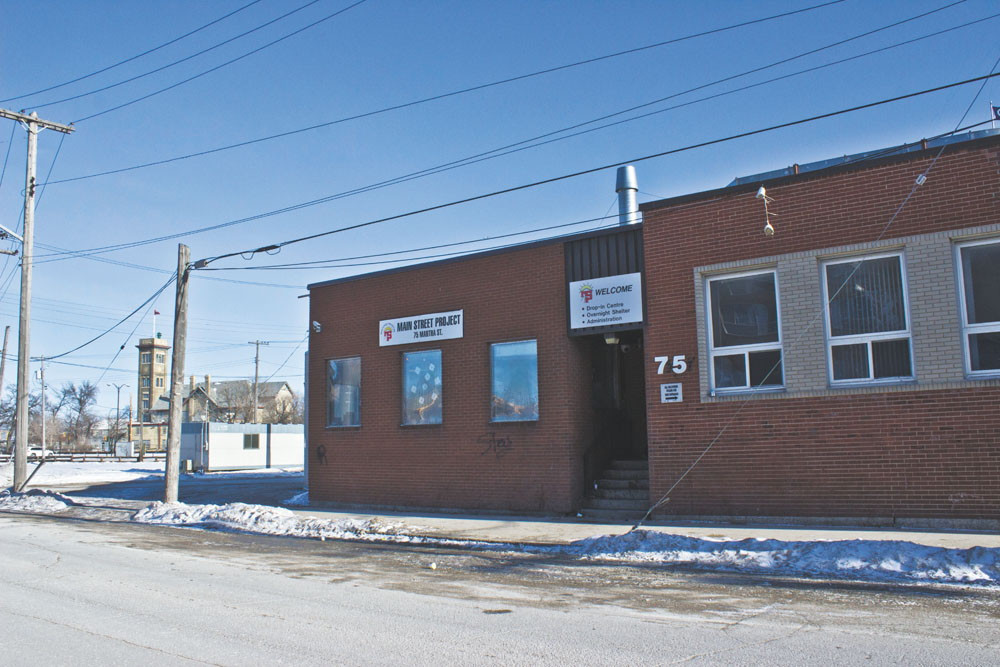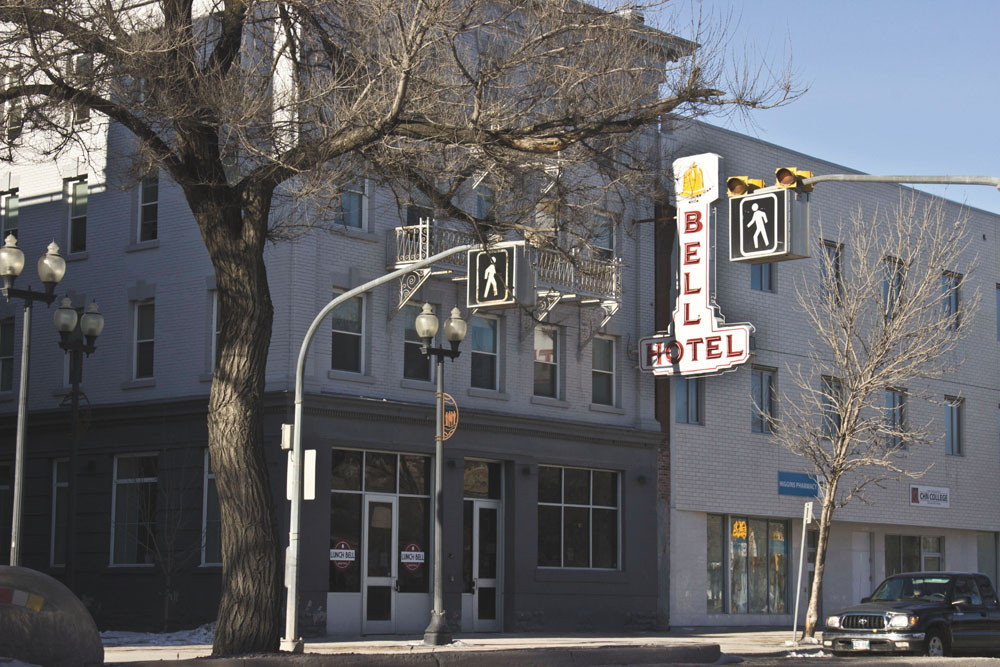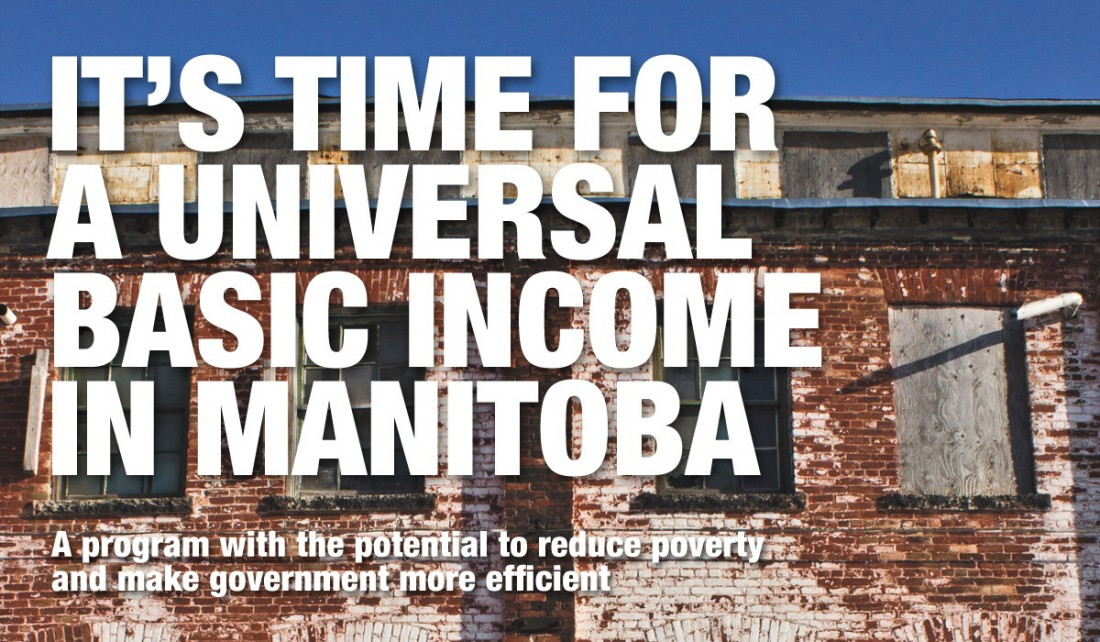IT’S TIME FOR A UNIVERSAL BASIC INCOME IN MANITOBA
A program with the potential to reduce poverty and make government more efficient
In the 1970s, Manitoba took a national leadership role on poverty reduction through the Mincome (Minimum Income) program in the city of Dauphin. According to the CBC, “From 1974 through 1978, about 30 per cent of the population of Dauphin was provided with a ‘mincome,’ as the guaranteed level of income came to be called.”
The goal of the program “was to find out whether a guaranteed income would improve health and community life. If a household’s income dropped below a certain amount, the program would top it up to an income equivalent to the welfare rates at the time. The participants who worked had their supplement reduced 50 cents for every dollar they earned in an attempt to encourage people in the program to look
for work.”

Despite signs of success - including a large drop in the number of people who were hospitalized for mental health issues - a change of government led to the Mincome program being short lived and nearly forgotten. However, it provided a glimpse into an alternative approach to poverty reduction in Manitoba.
Since then, successive provincial governments have stuck with the traditional poverty reduction approach.
How is that working out?
Today, Manitoba has the highest child poverty rate of all Canadian provinces. Almost one out of every three children in Manitoba lives in poverty - 10 per cent above the national average. Manitoba’s child poverty rate has been unchanged for 25 years.
Since 2008, food bank usage in Manitoba has increased by nearly 50 per cent, which is the largest increase in Canada. Of those who use food banks in Manitoba, 45 per cent are children. Our suicide rate is above the national average.
“ The most common criticism of a guaranteed annual income is that people would stay home and not work - the unfortunate thing about that argument is that it’s not true
Shaun Loney
Despite our large government bureaucracy, Manitoba has made zero statistical progress in poverty reduction. It can be argued that things are getting worse. It is said that the definition of insanity is trying the same thing over and over again and expecting a different result, and yet for decades, governments of both political stripes have been content with funnelling money into a broken system.
If Manitoba is at war with poverty, poverty is winning. If we are to achieve meaningful reductions in poverty, we must take a new approach. It’s time for Manitoba to adopt a Universal Basic Income.
A Universal Basic Income - sometimes described as a Guaranteed Minimum Income, Guaranteed Annual Income, or Negative Income Tax - has the potential to lift people out of poverty, reduce crime, lower healthcare costs while improving health, reduce bureaucracy and make government more efficient. That’s why the Universal Basic Income has growing support from individuals across the political spectrum.
But what exactly is a Universal Basic Income and how would it work?
Canadian Senator Hugh Segal is one of Canada’s most prominent advocates for a Universal Basic Income. He points out that Canada already knows how to lift people out of poverty without increasing government bureaucracy.

“The answer, in terms of poverty reduction for working age people, is the same as it has been over decades for seniors - automatic top-ups for those who fall beneath the poverty line,” Segal wrote in the Huffington Post. “When that happened for seniors in Ontario in the mid-1970s, their poverty rate fell from over thirty percent to under five percent - without the hiring of additional civil servants - largely because the tax system was the chosen delivery instrument. This Ontario plan migrated to all provinces and the federal government. It brought seniors back into the economic mainstream.”
Nobel Prize winning economist Milton Friedman also supported a form of Universal Basic Income - a Negative Income Tax.
Here’s how Friedman described his plan: “The proposal for a negative income tax is a proposal to help poor people by giving them money - which is what they need - rather than as now, by requiring them to come before a governmental official, detail all their assets and their liabilities and be told you may spend X dollars on rent, Y dollars on food, etc and be given a handout.”
Friedman believed a Universal Basic Income would be more effective than the traditional welfare system. “Once they get on (welfare), we make it almost impossible for them to get off. In order for somebody who gets on to get off, he or she has to be able to have a very good job, because to earn a little bit, to get off gradually, now doesn’t pay. Under a negative income tax, you would give people the possibility of getting off gradually - they can earn an extra hundred dollars or an extra two hundred dollars and be better off.”
While there are many Universal Basic Income proposals, there is broad agreement that a Universal Basic Income has the potential to reduce poverty while also making the government more efficient. For Manitoba - a province with extensive poverty and a vast public sector - this could have significant benefits.

There are those who have concerns about a Universal Basic Income. Among those concerns is the potential cost of a Universal Basic Income as well as the possibility that people receiving the benefit may just stop working. Many are bothered by the possibility that able-bodied individuals could get ‘money for nothing’.
Shaun Loney is a Social Enterprise Developer at the Social Enterprise Centre and winner of the Ernst and Young Social Entrepreneur of the Year award. He believes a Universal Basic Income is not only affordable, but could be implemented in a revenue-neutral way.
“With a proper guaranteed annual income there’s a lot of program savings,” Loney says. “You don’t need provincial social assistance which is $400 million. You don’t need on reserve social assistance which is $200 million. You don’t need the GST tax credit. You don’t need the child tax credit. You don’t need Old Age Security. You add up all those government programs and that comes to 1.3 billion dollars (in Manitoba).”
These savings are in addition to possible healthcare savings and healthcare benefits described in a study of the Dauphin Mincome experiment.
According to Dr. Evelyn Forget, a University of Manitoba Economist the Professor who conducted the study, “We found a significant reduction in hospitalization, especially for admissions related to mental health and to accidents and injuries, relative to the matched comparison group.”
“Our results document the value of health administration data for historical analysis, and demonstrate that a relatively modest GAI (Guaranteed Annual Income) can improve population health suggesting the possibility of health system savings.”
Dr. Forget concluded, “These results would seem to suggest that a Guaranteed Annual Income, implemented broadly in society, may improve health and social outcomes at the community level.”

According to Loney, these healthcare savings could easily equal $200 million dollars, just from reduced pressure on the healthcare system.
The justice system would also benefit. Senator Segal argues that a Universal Basic Income is an essential tool for reducing crime and saving taxpayer money. Writing for the Toronto Star, Segal states, “Less than 10 per cent of Canadians live beneath the poverty line but almost 100 per cent of our prison inmates come from that 10 per cent. There is no political ideology, on the right or left, that would make the case that people living in poverty belong in jail,”
“With all costs factored in,” Segal writes, “Canadians spend more than $147,000 per prisoner in federal custody each year. By contrast, it would take between $12,000 and $20,000 annually to bring a person in Canada above the poverty line. Even at the high end of the GAI (Guaranteed Annual Income) scale, this represents savings to taxpayers of $127,000 per federal prisoner each year.”
Loney also believes that a Universal Basic Income could reduce crime. “I got a group of my co-workers together here at the social enterprise centre, people who were involved in the drug trade at one time and said ‘would you have been involved in the drug trade if you had a stream of income? And the answer was an emphatic no,” he says. “You don’t sell drugs because you like selling drugs, you’re selling drugs for income and you don’t do it if you have income.”

We cannot escape the costs of poverty, but we can choose to be proactive rather than reactive in how we address it. According to the National Council of Welfare, while poverty costs the federal government $24 billion per year, the cost of bringing all Canadians in poverty above the poverty line would be only $12.6 billion. So a proactive approach in the form of a Universal Basic Income is far from being costly. It could represent significant net savings to citizens and taxpayers.
Since we are already paying for poverty, the question is whether we want to keep throwing money down the drain for an ineffective system, or invest in a program that will achieve results.
“Knowing that poverty is the most reliable predictor of trouble with the law, early use of our health care facilities, lower life span, illiteracy, family violence and unemployment, all of which cost tens of billions of tax dollars at a time when tax dollars are hard to find, should spur innovation,” Segal writes. “Never mind the core inhumanity of not helping the people whom we need as productive, taxpaying, full participants in our economic mainstream.”
Segal also notes, “The vast majority of folks living beneath the poverty line are working, on occasion, in more than one job, just not earning enough to get by.”
Despite the benefits and potential savings, there is still the concern that a Universal Basic Income would disincentivize work.

“The most common criticism of a guaranteed annual income is that people would stay home and not work - the unfortunate thing about that argument is that it’s not true,” says Loney. “In all of the field studies - and there have been 5 across North America - the labour market participation declined in only two areas. One was young adults so that they could stay in school longer - which you could argue is a very good thing for the economy - and the second is young mothers, who chose to stay home and spend more time with their kids. So, the criticism levelled against the guaranteed annual income is not based in reality.”
Milton Friedman’s Negative Income Tax proposal was structured precisely to incentivize work while reducing poverty.
Here is how Friedman’s plan would work: Imagine the income floor is set at $20,000. Someone who made $10,000 would receive a supplement of $5,000 - half of the gap between their income and the $20,000 income floor. If that person made an additional $1,000 dollars - for a total income of $11,000 - the government would supplement $4,500 dollars of income - half of the difference between $11,000 and $20,000. This would leave the individual with a net gain of $500.00.
This would incentivize work by ensuring that earning more means keeping more. It would also avoid the so-called ‘welfare wall’ (where benefits are clawed back $1 for every additional $1 that is earned,) which is a clear disincentive to work that exists in the current system.
With the potential benefits of a Universal Basic Income, what’s the next step?
“Allocate all of the dollars going into low-income transfers right now - every low-income transfer program - and come up with that number - which I think is about 1.3 billion in Manitoba and then add to that savings you’re going to get in the healthcare system and savings you’re going to get in the justice system,” Loney says.
“Determine what the basic annual income floor would be based on that amount of money - which is probably pushing 2 billion dollars and what we know is that potentially hundreds of thousands of people would be better off. And it would be a massive reduction in poverty. And the cost of it would be zero.”
A Universal Basic Income can incentivize work, provide significant savings, improve social outcomes, reduce poverty and make government more efficient. After decades of suffering caused by failed poverty reduction policies in Manitoba, it’s time to change direction. It’s time to resume the leadership role we took with the Mincome program. It’s time to take real action to end poverty and make government more efficient.
It’s time for a Universal Basic Income in Manitoba.
Spencer Fernando is the Comments Editor for The Uniter.
Published in Volume 69, Number 19 of The Uniter (February 4, 2015)







